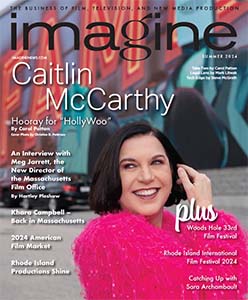In order to make the story of your life, or of some part of your life, into a movie, one must first gain perspective and objectivity. The process of making this attempt is fraught with pitfalls. Let’s talk about some of them….
As with any screenplay or novel, knowledge of story and character are essential to a structure which functions in such a way that the reader or audience is engaged, and ultimately satisfied. These objectives, when approached, are ultimately achieved by painstaking detail to the histories of the characters, the construction process of plot, with each dramatic beat, scene, sequence, and act functioning in the service of the screenplay.
But when writing the story of your own life, this process becomes murky. This is a natural response to attempting a personal story. Events from your past stick out in one’s mind; be it painful, poignant, funny or tragic. These memories remain in your mind like moving polaroid photos and stay with you. At some point, you begin to talk about your experiences with others, until a voice cries out, (either your voice or someone elses) “Your life is a movie”. And the process begins.
When writing your own story, the first instinct is to remain absolutely true to the events as they actually happened. This is the first fatal error of writing about your own life. The events as they actually occurred are not a movie. They are not even a novel. They are the the basis of the story, absolutely. But they do not make a film on their own delivered to the page exactly as they occurred.
The cinematic structure is the most difficult form of writing that exists. It’s limitations are unforgiving and absolute. So, no matter how incredible your personal story might be, you must begin here, with structure.
I have often described the principal of kill your paper babies. For those of you reading this column for the first time, a quick review: A paper baby is an idea for a scene that sticks in your head, is absolutely front and center in your idea for a movie, but serves no actual function in the plot structure of your movie and which, ultimately, must be thrown away. To kill these ideas off can be painful, but it is absolutely necessary to do so.
But the most common error of writing personal stories is the refusal to take three important steps, which I will list here. They are:
1. Create a ficticious name for yourself, that is, the character that is you. This name should not resemble your own true name in any form. It should be completely separate and not at all identifiable to your own name. The reason is that in order to gain command of your story and then transmit the essense of your experience into a cinematic structure, your character must be clear, and separate from you. The character on the page, though it may be illumunating experiences from your own life, must live slightly outside of your “self”. The universe of your story ultimately lives in, and will be delivered, via your screenplay, which is where the character needs to function.
2. After creating a new name for yourself, which will serve the the purpose of providing a vehicle for your character, who will ultimately tell the audience about your story, you must create his/her history. At this stage, there is more leeway. The events of your life which motivated you to begin the process in the first place, must have a history. Of particular importance in this stage is your fractured narrative. Once again, for those of you reading for the first time, the fracture in the narrative is that injury which occurs to the character before the action of the plot begins. If we are talking about Dorothy in THE WIZARD OF OZ, the fracture in her narrative would be the loss of her parents. This injury is what creates her sense of loss and longing, and makes the audience feel empathy for her right from the start. It is vital to the structural health of your screenplay that you include this in your character history. The recollection of this event, this fracture in your own personal narrative, can be painful to recall. The retelling of such events, even years later, can oftentimes be very painful to access. It is for this reason that a pseudonym must be selected before you even begin the process of writing a single word.
3. After identifying a ficticious name for yourself, create a new, fresh universe in which that character, based on you, will tell your story. Reject the need to put the actual names of your friends and acquaintances in your screenplay. The ultimate effect will be that they will block you. Why? Because you are creating a new universe to tell your story in, that universe is called a screenplay. If you reach back to the actual world in order to gain access to story points, your writing brain will become confused and then enslaved by this need to “be true to what actually happened.” That is bullshit. The one you need to be defiantly true to and ferociously protective of is this cinematic version of your story, not the actual events, as they actually happened. Now, this begs an arugument. Will you include actual events from your life in the screenplay? Yes, of course. Will the story be based on your experience? Again, yes. But the version of the story which you are telling is a cinematic retelling of something that happpend in your life, and not an actual, literal, retelling of your story. It is the cinematic context which will ultimately serve the structure of your cinematic story. It is the only context that can serve that purpose. If you are still engrained in the literal version of this story, which is your story, it will read flat.
While screenwriting is the most difficult form of story writing that exists, the most difficult form of screenwriting that exists is writing your own story. Getting close to the character demands that you be objective. Time plus distance equals perspective. In order to be objective, one must have these elements in place. Be brave. Take the necessary steps. In order to be true to oneself in creating the movie of your own life, you need take some creative steps.,The steps listed here will help you get your story out of you heart and mind, and down onto the page.
Peter Fox has worked at Paramount, Universal, Sony Pictures and Warner Brothers as a Story Analyst and conducts The Inside Track for Story and Cinematic Structure at theaters, nationwide. He holds an M.F.A. in Screenwriting from The American Film Institute. www.peterfoxworkshops.com.



